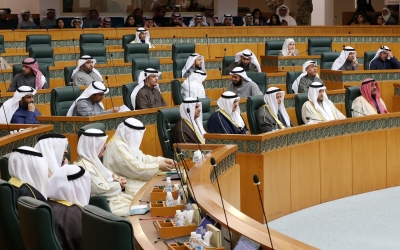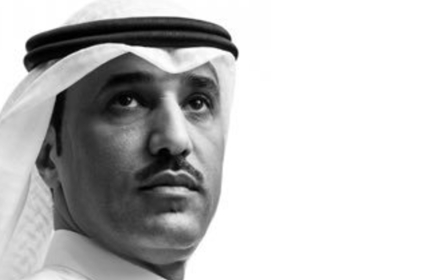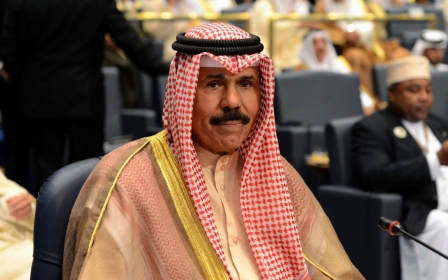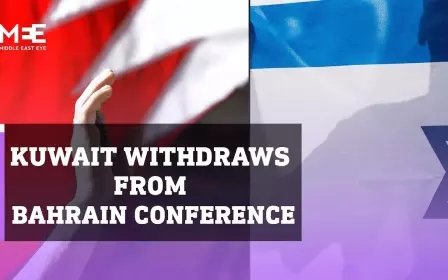Kuwait: What will come of this 'illiberal moment'?
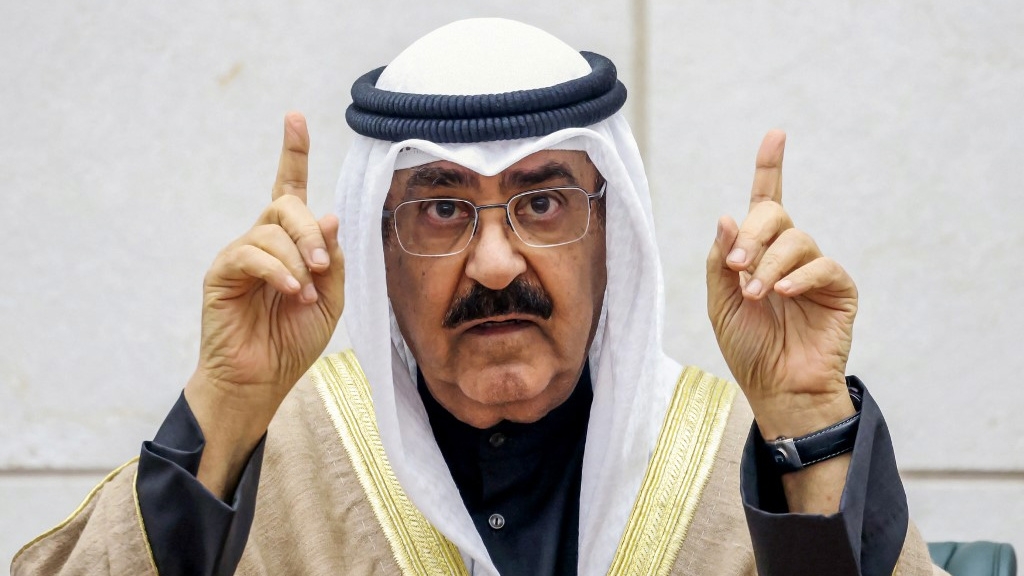
After the recent suspension of Kuwait’s National Assembly and several articles of the constitution, it is practically impossible to forecast the future of the country’s internal affairs with any degree of confidence.
Some prominent Kuwaiti figures, including former members of parliament, have hailed Emir Mishal al-Ahmed Al Sabah’s move, while others are worried about this “illiberal moment”, amid fears of democratic backsliding and a crackdown on dissent.
Unlike two previous suspensions of the Kuwaiti parliament in 1976 and 1986, the latest move was a result of domestic, rather than regional, factors.
The emir and government have been in conflict with the National Assembly for years, amid back-and-forth accusations of incompetence, abuses of power and corruption. Facing political deadlock, the emir determined that a bold move was necessary to “save” Kuwait and “not allow democracy to be exploited to destroy the country”.
Gordon Gray, a professor with expertise in Kuwaiti politics at George Washington University’s Elliott School of International Affairs, told Middle East Eye: “The emir’s background is in intelligence and national security, so he is unlikely to be comfortable with the give-and-take of parliamentary politics or the National Assembly’s strong interest in having a say in the naming of the new crown prince.”
New MEE newsletter: Jerusalem Dispatch
Sign up to get the latest insights and analysis on Israel-Palestine, alongside Turkey Unpacked and other MEE newsletters
Many experts doubt, however, that Emir Mishal al-Ahmed’s extraconstitutional move will impact Kuwait’s approach to regional and global affairs.
“This move is not likely a shift in foreign policy. Instead, it most likely reflects the emir’s focus on internal matters,” Dania Thafer, executive director of the Gulf International Forum, told MEE. “Attempting to radically change foreign policy and simultaneously overhaul the economy through domestic reforms would be a precarious endeavour during this delicate period.”
Relations with Riyadh and Abu Dhabi
Gray also said that domestic matters, not foreign policy issues, were at the heart of recent disagreements and divisions among Kuwaitis.
“The conduct of foreign policy is not controversial within Kuwait; for example, unlike Bahrain or the UAE, the government has not normalised relations with Israel or even hinted it is moving in that direction,” he said.
Kristin Smith Diwan, a senior resident scholar at the Arab Gulf States Institute in Washington, also did not expect serious changes to follow in Kuwait’s foreign relations, telling MEE: “These constitutional suspensions are all about Kuwaiti domestic affairs: executive-parliamentary relations and ruling succession. I don’t see much impact on Kuwait foreign policy, which has been modest in ambition in any case.”
With Kuwait now in a delicate period, the rest of the GCC seems to be respecting its sovereign right to manage its own domestic affairs
It is important to note that Emir Mishal al-Ahmed maintains close relationships with both Saudi Crown Prince Mohammed bin Salman and UAE President Mohammed bin Zayed. His first foreign trip after being sworn in late last year was to Riyadh, where he met the crown prince in January.
Shortly after the suspension of the National Assembly and parts of the constitution, Mohammed bin Zayed expressed his support for the emir’s move as a measure to preserve Kuwait’s “stability”.
Could this mean that Kuwait City’s relationships with Abu Dhabi and Riyadh will strengthen in the upcoming period?
“Kuwait may draw closer to the Saudi-UAE-Bahrain axis within the [Gulf Cooperation Council], which would be a shift away from the middle stance it long has taken in regional politics, but in truth Kuwaiti foreign policy has been less active or prominent since the death of Emir Sabah in 2020, and the fracturing of ties between Riyadh and Abu Dhabi mean there is less of a Saudi-Emirati axis than there was in the mid-2010s when Kuwaiti balancing was important,” Kristian Coates Ulrichsen, a Middle East fellow at Rice University’s Baker Institute for Public Policy, told MEE.
“Emir Mishal likely undertook this move for reasons of domestic interest rather than foreign policy, but a Kuwait shorn of its National Assembly and aspects of its constitution does indeed more closely resemble the political landscape in Saudi Arabia and the UAE,” he added.
Deep-rooted history
Of course, none of this demonstrates that the UAE, Saudi Arabia or any other country played a role in Emir Mishal al-Ahmed’s extraconstitutional action - even as one former Kuwaiti politician alleged that to be the case.
Shortly after the emir announced the suspension of parliament, Walid al-Tabtabie, a conservative Islamist who previously served as an MP, called out “unacceptable” external interference in Kuwait via X (formerly Twitter). He was arrested shortly afterwards.
Tabtabie accused “some countries” of playing a role in bringing Kuwait under unconstitutional rule. Although he did not name a country, Arab media outlets suggested that he was referring to the UAE and Saudi Arabia.
Officially, the other Gulf states haven’t said much about Emir Mishal al-Ahmed’s move. “It is striking to me that so few of the Gulf countries have issued statements on the constitutional changes in Kuwait, especially as monarchs are usually quick to offer solidarity to fellow rulers,” Smith Diwan said.
With Kuwait now in a delicate period, the rest of the GCC seems to be respecting its sovereign right to manage its own domestic affairs. “Officials in other GCC states are likely to take the view that developments in Kuwait are a matter for the Kuwaiti leadership, in keeping with the spirit of the Al-Ula Declaration in January 2021, which reaffirmed national sovereignty and committed the signatories to ‘stand firm against any confrontation’,” Ulrichsen told MEE.
There is also a deep-rooted history of Kuwait’s brotherly relations with other GCC members to consider. Close cooperation with Kuwait is important to all Gulf monarchies, especially at a time of conflict in Palestine and elsewhere in the Middle East, which has brought the GCC states closer together.
“Kuwait was always close to Saudi Arabia, the UAE and Oman. Folks in the sheikhdom perceive their fates to be tied with those of their neighbours,” Joseph Kechichian, a senior fellow at the King Faisal Center for Research and Islamic Studies in Riyadh, told MEE.
Saudi officials “fondly recall” how hospitable Kuwaitis were to the kingdom’s founder, while the Emiratis and Omanis have benefitted financially from their relations with Kuwait in decades past, he added. Today, “given serious regional threats, it is eminently clear that cooperation on the Arabian Peninsula… will continue to increase”.
The views expressed in this article belong to the author and do not necessarily reflect the editorial policy of Middle East Eye.
Middle East Eye delivers independent and unrivalled coverage and analysis of the Middle East, North Africa and beyond. To learn more about republishing this content and the associated fees, please fill out this form. More about MEE can be found here.



